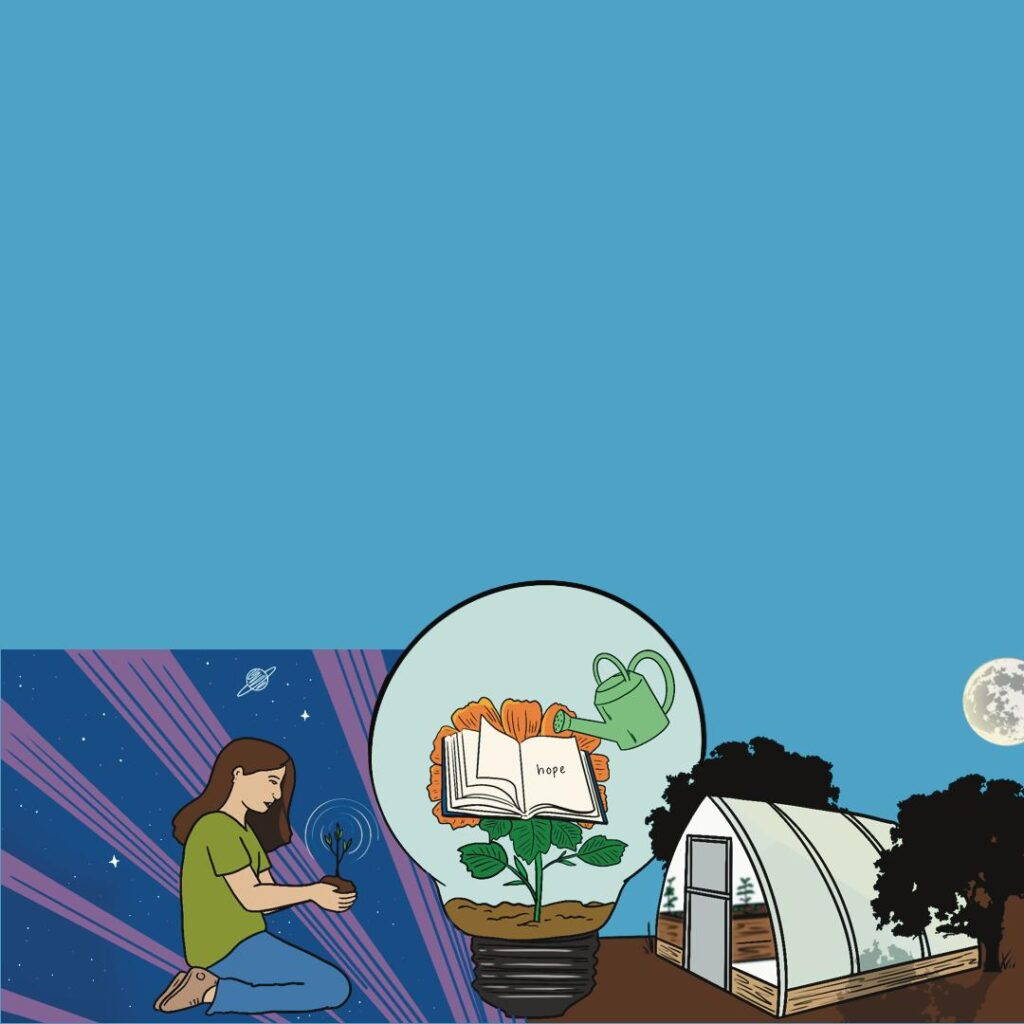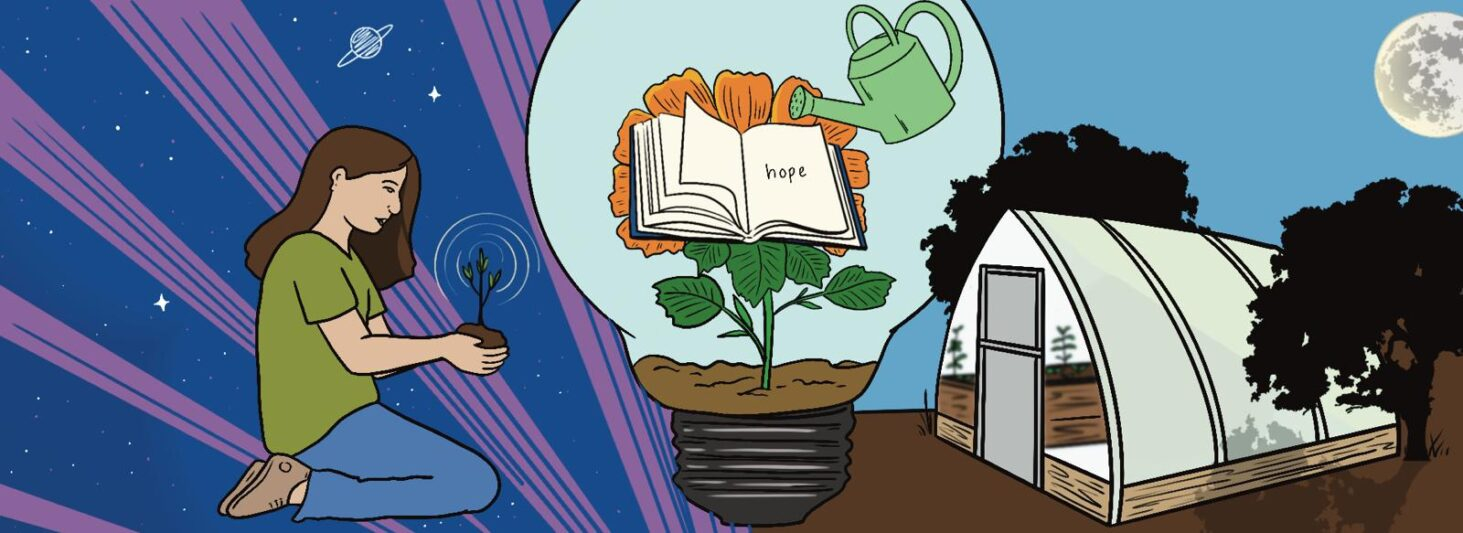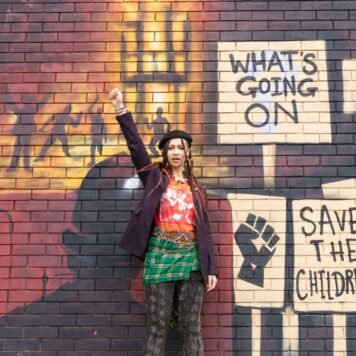Our current systems do not cater to the needs of the human heart but focus instead on profiting from them. Within a consumerist culture, we are witnessing the rise of internet aesthetics, a term used to describe the communities we can forge online based on our similarities and appearances.
If I wanted to be part of the clean girl aesthetic, I’d need to wear a separate set of clothes and use particular skin and makeup products that fit the bill. How strange that even finding community costs? It is no surprise to me that loneliness has become a global public health concern. Capitalism has found a way to feed on our hunger to belong.
Examining the structures on a macro level enables us to understand their impact on individuals. Neoliberal capitalism, an economic and political ideology, was designed to ensure that market competition and individualism remain the beating heart of our economy. Such an ideology would eventually trickle into the behaviours of the people who make up society. Suddenly, citizens are consumers and the sole makers of their destinies.
What we are left with is a world with rising global temperatures, widespread poverty, and deteriorating mental health. However, the systems that govern our lives are rooted in outdated ideas of democracy and progress that are more in line with colonialism than what the world urgently needs. This is why we struggle to adapt to global changes.
But, could fiction be the answer to creating an ideology that not only aids us in adapting to our times but could enable us to build something new? Isaac Asimov, the late American writer and biochemistry professor, said, “The core of [science] fiction, its essence, has become crucial to our salvation if we can be saved at all.” I find his words true whenever I pick up science or speculative fiction.
Writers such as Octavia Butler, George Orwell and Ursula K. Le Guin encourage us to imagine and build new worlds and ways of thinking through their work. Their stories remind us of who we are, what we can become, and the great heights we can reach with radical imagination. In this way, fiction can be a tool to aid us in forming just societies.
Octavia Butler’s Earthseed and the limitations of politics and religion
Whether “Religion is the opium of the people,” as Karl Marx believed, what is evident is that Abrahamic religions have, so far, been unable to combat the global injustices that exist. This could be because of the eschatological nature of religion, which remedies our existential fears of life and death by providing us with the solace that poverty, environmental devastation, and corruption will no longer exist in the afterlife.
If religion offers ideas of liberation after death and neoliberal capitalism presents an ideology that promises liberation through hard work, what set of ideas could bring about collective liberation, both in the present and for future generations? Fiction, with its imaginative power, provides us with a compelling answer to this question.
The Parable of the Sower is a speculative fiction novel written in 1993 by the renowned late African American author Octavia E. Butler. The story is set in the US in 2025, when the nation suffers from the implications of global warming, wealth inequality, and political upheaval.
Essentially, Thomas Hobbes’ state of nature manifests itself in a society where violence, corruption, and crime are daily experiences. The protagonist, Lauren Olamina, believes that people need to follow a new set of beliefs to liberate themselves from their collective suffering, so she creates Earthseed, an alternative faith that is rooted in the importance of change. The most famous verse from this new faith is:
All that you touch you change
All that you change, changes you
The only lasting truth is change,
God is change.
“God is Change” has always been a powerful line to me. At the novel’s beginning, we see how deeply Lauren’s immediate community relies on Christianity and the hope for the ‘good old days’ to help them endure their circumstances. Lauren sees these beliefs as her community’s ‘opium’, which only hinders them from adapting to survive.
To Lauren, change is in and of itself a dogma and manifests throughout time as evidenced by biological evolution, relativity and chaos theory. Therefore, once we accept that chaos and change are unavoidable, we disregard the hyper-focus on a utopian afterlife to alleviate our present struggles. Instead, we respond collectively to the changing world in a self-sufficient and flexible way to progress the human race.
Our future is in each other and nature, not the past
When I look at the rise in far-right political parties around the world, it reminds me of the thought patterns of Lauren’s first community. Today, as people experience the brunt of the cost of living across the world, far-right political parties do not explain that at the root of these issues lie neoliberal capitalism or class injustice. Instead, they assign the struggles to an influx of a migrant community, a loss of traditional values or threats to sexuality and the nuclear family. Slogans such as “Make America Great Again” or “God, Family, Fatherland” are built on the premise that once we return to our old ways, our future will thrive.
To me, this only proves how our protagonist is right: our fear inhibits us from seeing that change is the only way to progress societally, not through a past that had led to the plights currently being experienced. We must only look to the past if we want to use it to understand what must be done differently in the future.
Earthseed also recognises the importance of understanding and partnering with nature to ensure survival. Throughout the novel, Lauren tries to engage with nature as a tool for adaptation and sustenance.
In the first novel, Lauren lends a book to her childhood friend about the plants “California Indians” used to survive. In the second novel, Parable of the Talents, Acorn, Lauren’s community create ‘living walls’ made from cactuses and thorn brush, learns from desert plants and forages daily. It is not an anthropocentric relationship but one that recognises that engaging with nature in the least exploitative way is necessary to be self-sufficient amidst the chaos. This is because, for the followers of Earthseed, Nature is God’s face:
Create no images of God.
Accept the images
that God has provided.
They are everywhere…
Seed to tree,
tree to forest;
Rain to river,
river to sea;
Grubs to bees…
Knowledge-sharing is also vital for the followers of Earthseed, even amongst children. In Parable of the Talents, children at Acorn are given a group project and an individual project on two unrelated subjects. A measure of learning these subjects well is that they understand how the unrelated subjects influence one another, and from there, the children teach each other what they know.
When I speak on panels about community adaptation and resilience in the face of the poly-crisis, I talk about community growth sustained through such practices. We all have different skills that we can teach one another, from carpentry to writing to gardening to playing an instrument. Creating spaces to teach one another these skills and collectively learn enables us to understand their interconnectedness. Some can incite critical thinking. In contrast, others can incite creative thinking. Yet, all incite change.
Subscribe to shado's weekly newsletter
Exclusive event news, job and creative opportunities, first access to tickets and – just in case you missed them – our picks of the week, from inside shado and out.

Octavia Butler’s liberatory legacy of imagination and hope
Octavia Butler’s Parable series is prophetic and continues to inspire scholars, environmentalists and readers alike.
The Parable of the Sower inspired me to create Not Actually Radical in 2021. Not Actually Radical is an online platform that focuses on using education as a tool to consciously liberate the Diasporic community. Butler’s novel was vindication for me that education is the nucleus of change and helps us to create new pathways for experiencing the world and one another.
In September 2022, Washington STEAM Multilingual Academy became Octavia E. Butler Magnet, the first school named after the writer, teaching science, technology, engineering, art and maths. The only Indigenous permaculture farm in California is called Earthseed. The 14-acre solar-powered farm seeks to be the physical manifestation of Lauren’s community, Acorn, and is located on the ancestral lands of Coast Miwok and Southern Pomo Peoples.
Butler gave the world a “cautionary tale” through the Parable series, warning us of what our world could become and how our response to this could stretch our human potential.
It’s evident that our current reality, influenced by capitalism and colonialism, limits our ability to imagine and have hope. The 9-to-5 grind impacts our lives, making it difficult to rest or think beyond our next paycheck.
Fiction, in its transformative power, breaks through the barriers that confine our minds. It creates characters who are not bound by our mental constraints, showing us the boundless nature of our beings. Through Butler’s characters, we learn how to navigate the poly-crisis and coexist with nature.
Butler, through Lauren, poignantly reminds us that hope is not a radical emotion but a fundamental necessity for our survival in these tumultuous times. When Lauren’s friend Joanne expresses despair, saying, “There’s nowhere to go,” Lauren responds with hope: “There might be.” And when Joanne laments, “We can’t do anything about it,” Lauren – and by extension Butler – reminds us: “We have to.”
Fiction warns us as much as it frees us
In her memoir, Reading Lolita in Tehran, English literature professor Azar Nafisi uses fiction to caution her students about the potential consequences of Ayatollah Khomeini’s leadership and his promises for the country. As propaganda and violence increased, citizens started to classify each other in a binary way: either you were a good person who supported the revolution or you opposed it and were seen as terrible.
Nafisi used the works of authors such as Vladimir Nabokov, F. Scott Fitzgerald, and Jane Austen to remind her students not to see the revolution through such a simplistic lens and to realise that the revolution was fueled by a fictional desire to return to a past that would ultimately have disastrous consequences. In one chapter, Nafisi explains to her students:
“It is only through literature that one can put oneself in someone else’s shoes and understand the other’s different and contradictory sides and refrain from becoming too ruthless…if we had learned this one lesson from Dr A, our society would have been in a much better shape today.”
Toni Morrison’s Sula also reminds us of this. The townspeople of Medallion fear Sula, who embodies everything their upbringing and Christian faith told them a woman shouldn’t be. Yet, through Sula’s eyes, we see how they are a community trapped in their traditions. Sula tells the reader,
“Their eyes [are] so intent on the wayward stranger who trips into their net, they are blinded to the cobalt on their backs…” They lack the “invention” needed to survive and thrive as a community, so they find comfort in their judgement and damnation.
Toni Morrison shows us the cost of this. The townspeople’s inability to reinvent themselves soon leads them to their deaths, as their blind anger for their lives causes many of them to fall underneath a tunnel and die.
Such a demise is not confined to the realm of fiction. If we, as a global society, fail to adapt to our changing world, we will find ourselves in a similar plight as the people of Medallion. It may not be a tunnel we fall under, but instead, through a climate threatening the extinction of islands like Tuvalu or democracies where new prime ministers and presidents are sworn into old roles whilst communities sink deeper into poverty.
As I observe the parallels between fiction and our present reality growing stronger, I wonder if the resistance to change stems from the fear of diminished power for a subset of people and of facing the truth that what we once adhered to was essentially a fictional doctrine that could have always been rewritten.
Books are seeds that can grow our just society
While Octavia Butler’s novels do not align with Hobbes’ idea of a social contract, they do describe environments where conflict is driven by Hobbes’ concept of competition, diffidence, and glory. However, I find myself at odds with Butler’s belief that the human race can only change when it is not rooted on Earth.
Fiction is a tool that enables us to imagine radically and simultaneously shows who we are and the costs of our behaviours. We can use the knowledge we gain from fiction to implement an ideology on Earth that can promote justice. Clearly, the systems that uphold our lives do not encourage community, but most importantly, they do not promote a progression of thought that could enable a new world. This is why decolonisation can often feel impossible since decolonisation is an unlearning of the systems that govern us to create the headspace to build new systems physically, mentally and spiritually.
I believe that what we need societally is a new story to guide us. It is a story that inspires us to change and take action, a story that liberates our economies, our hearts, the environment, and the entire world that surrounds us. Through fiction, this story can begin to be written.
Here is how I propose we start:
Education: In the classroom, we should teach literature in ways that promote imagination and foster intergenerational knowledge-sharing. For instance, by incorporating more sci-fi novels into the GCSE/High School curriculum, we can encourage young people to create their own worlds and share their thoughts on how to improve the state of the world. This approach will create a sense of connection and engagement, allowing different generations to learn from each other.
Community Work: Highlight the role of book clubs in community work. They serve as platforms for learning from literature that mirrors our lives and envisions what humanity could become. By establishing book clubs, we can create spaces within our communities for people to brainstorm on the ideologies and economies that can foster prosperity, as demonstrated by Acorn, Lauren’s community.
Decision-making: Policymakers, activists, and constituencies that enter decision-making spaces (such as the UNFCCC), have the power to advocate for change. By promoting decision-making that does not reflect the policies and rhetoric of the past, we can address pressing issues such as climate mitigation and global food security. This shift in thinking and strategy can open up new possibilities and enlighten us to different perspectives, giving us hope for a better future.
Change is a multifaceted vision; it does not lie in the hands of the community alone, nor solely in politicians’ actions. It is fuelled by a purpose that feels feasible and innovative enough for everyone to hold onto and move towards. When I talk about ‘feasible’, I do not mean something simple. It is feasible because it goes beyond your present experiences, but because you can envision it, you believe it can be true. Herein lies the power of storytelling.
Our story of the world to come must be different, hopeful and charged with the acceptance that adaptation means reinventing ourselves, our governments, and our future. We must tell this story to our children and elders and take it into the places where privilege and power lie. The question I encourage you to take into all your spaces is, what story will we create to guide us to our just future?
What can you do?
Read works of science and speculative fiction that challenge our thinking:
- The Parable series by Octavia E. Butler (The Parable of the Sower, The Parable of the Talents).
- Dawn (Xenogenesis series) by Octavia E. Butler
- The Dispossessed by Ursula K. Le Guin
- The Left Hand of Darkness by Ursula K. Le Guin
- 1984 by George Orwell
- Palestine +100 | Stories from a century after Nakba edited by Basma Ghalayin
- Begin the World Over by Kung Li Sun
Other:
- Join, create or encourage book clubs in your community so we can all be a part of forward thinking conversations.
- Learn more about the political and economic systems that drive society so that you can ideate on how things could change
- Listen: Why we can’t think beyond capitalism
- Read: A Brief History of Neoliberalism by David Hardy
- Watch: How Neoliberalism Became Culture




